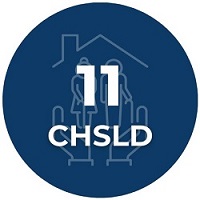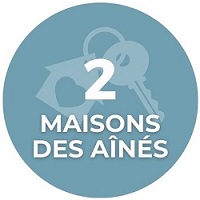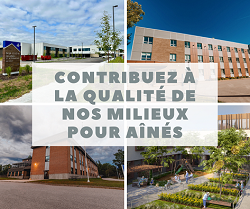Intermediate resource
An intermediate resource (IR) is a type of accommodation that houses children or adults who may have particular needs related to a loss of autonomy, physical or intellectual disability, autism spectrum disorder or mental health problems. Its mandate is to provide a temporary or permanent living environment to users entrusted by the CISSS de la Côte-Nord and to provide them with support or assistance services to meet their needs.
You can submit a project to operate an IR when the CISSS de la Côte Nord publishes a public call for tenders on the website of the  Système électronique d’appel d’offres du Gouvernement du Québec (SEAO).
Système électronique d’appel d’offres du Gouvernement du Québec (SEAO).
Family-type resource
A family-type resource generally consists of one or two people who house a maximum of nine users (children or adults) entrusted by the CISSS de la Côte-Nord in their main place of residence. It provides an alternative living environment adapted to the users’ condition. It helps them in their daily lives and provides them with support and assistance services.
If you are interested in housing a child aged between 0 and 17 years old, visit our section on  foster families.
foster families.
Do you want to become a family-type resource for adults?
By becoming an FTR for adults, you could house the following users, depending on your profile:
- Seniors with a loss of autonomy
- People with a mental health problem
- People with intellectual disability (ID), autism spectrum disorder (ASD) or physical disability (PD)
Who can become an FTR?
Anyone who:
- Is of full age and lives alone or in a family, with a living environment that has the potential to house users who cannot stay in their natural environment autonomously and safely.
- Wants to make a difference in these people’s lives and is ready to spend time and energy on such a project.
- Wants to provide a warm, stimulating, comforting and soothing living environment.
- Is ready to collaborate with workers of the CISSS de la Côte-Nord and with families in order to support the user in their needs.
Contact us
To receive more details on IR-FTRs or to express your interest, send an email to the following address:
 ri-rtf.cote-nord.09cisss@ssss.gouv.qc.ca
ri-rtf.cote-nord.09cisss@ssss.gouv.qc.ca
Subsequently, a worker will contact you to give you more information and guide you through the process of becoming an FTR.
Documentation
 Provincial documentation (French only)
Provincial documentation (French only)
 Ressources intermédiaires et ressources de type familial - Cadre de référence (French only)
Ressources intermédiaires et ressources de type familial - Cadre de référence (French only)
 CHSLD
CHSLD Link to the section of the MSSS website (French only)
Link to the section of the MSSS website (French only)
 MDA-MA de Baie-Comeau
MDA-MA de Baie-Comeau
 ri-rtf.cote-nord.09cisss@ssss.gouv.qc.ca
ri-rtf.cote-nord.09cisss@ssss.gouv.qc.ca





